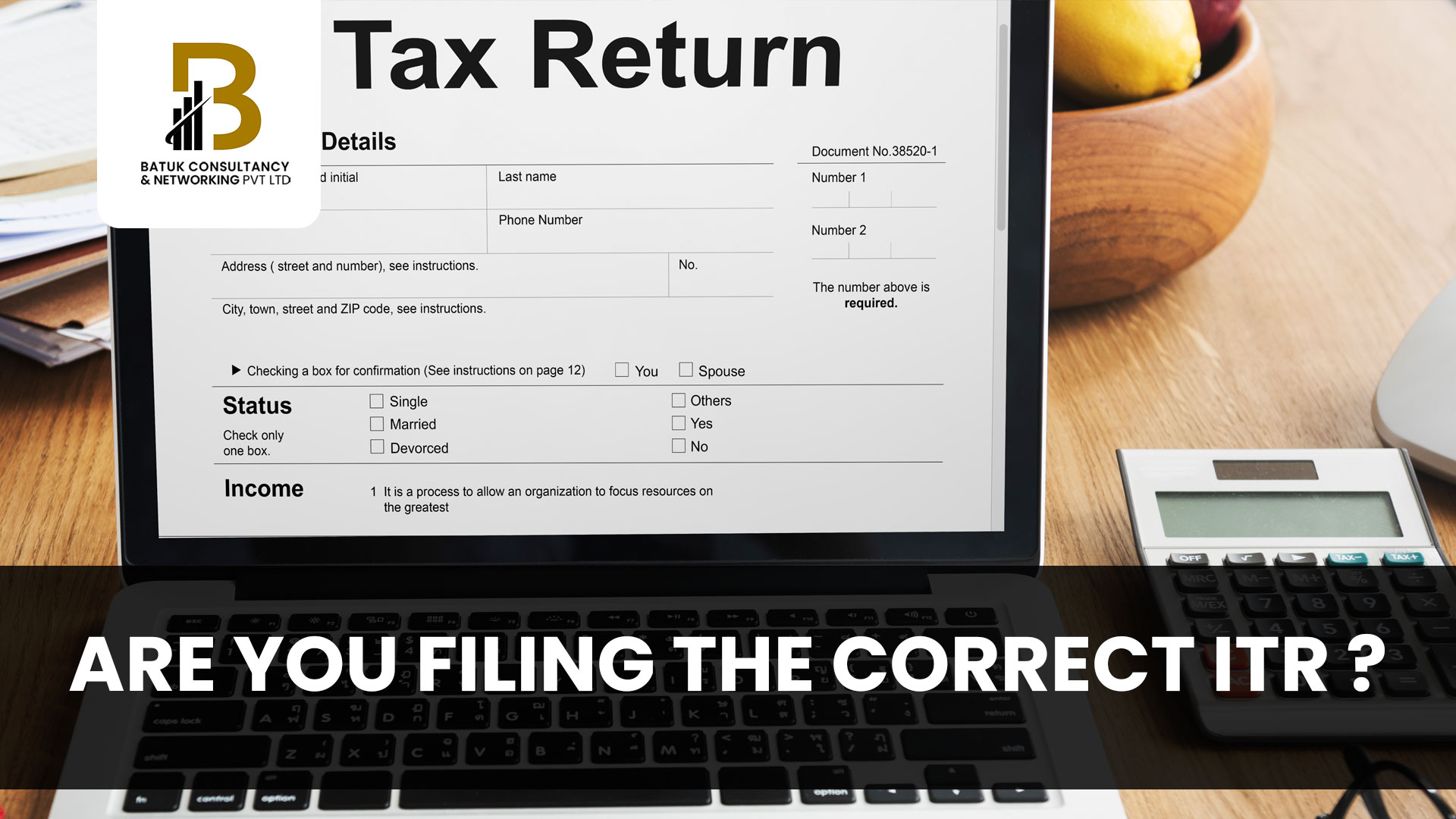Are you Filing the Correct ITR

Let’s understand the various Types of ITR :
- ITR-1 (SAHAJ):
This form is most likely the one you would be filing your tax return from.
It is the ultimate ITR form for individuals, both salaried and other income, such as agriculture, pension, etc. Individuals earning up to ₹50 lakh or agricultural income over ₹5,000. Individuals with one house property are also eligible for ITR-1.
This ITR is not eligible for individuals with foreign income (NRIs), capital gains, business/professional income, etc. ITRs may be filed using Form 16 by salaried taxpayers.
- ITR-2:
This ITR form is suitable for individuals and HUFs (Hindu Undivided Family) who earn income (> ₹50,000) from sources other than their occupation.
Individuals with more than one house property, capital gains, other income sources under Section 80TTA, and foreign income also fill it.
Some additional eligibility criteria for ITR-2 are individuals holding directorship under enterprises as well as unlisted equity shares.
- ITR-3:
This is a comprehensive form for individuals and HUFs with income from any source, including business/profession, capital gains, multiple house properties, foreign income, agricultural income, etc.
Generally, individuals who hold a partner position in a firm or earn money from intraday stock exchange or futures and options trading use ITR-3.
- ITR-4 (SUGAM):
ITR-4 is designed for individuals, HUFs, & firms (other than LLP) who are residents of India with presumptive business income under Section 44AD (up to ₹2 crore turnover) or professional income under Section 44ADA (up to ₹50 lakh turnover).
ITR-4 is not eligible for individuals with income from other sources or exceeding the respective presumptive taxation limits.
For Firms and Companies:
ITR-5 & ITR-6 are specifically designed to be filed by companies and businesses. Their specifications are as follows:
- ITR-5:
This ITR is used by firms, LLPs (Limited Liability Partnerships), AOPs (Association of Persons), and BOIs (Body of Individuals) filing returns under Section 11 (presumptive taxation for profits and gains of business).
This form asks for the revelation of the profits and other income sources of the businesses mentioned above.
- ITR-6:
ITR-6 is suitable for companies who are not claiming exemptions under Section 11. Income Tax Act’s Section 11 states that income derived from trust-held property or institutions dealing with charitable or religious purposes are exempt from tax, given that such income is used solely for religious or charitable purposes in India.
For Certain Specific Cases:
- ITR-7:
ITR-7 is used by individuals and companies required to file returns under specific sections like 139(4A), 139(4B), etc. This form is excluded from the category of filing income tax as it deals with trust income, foreign assets, etc.
